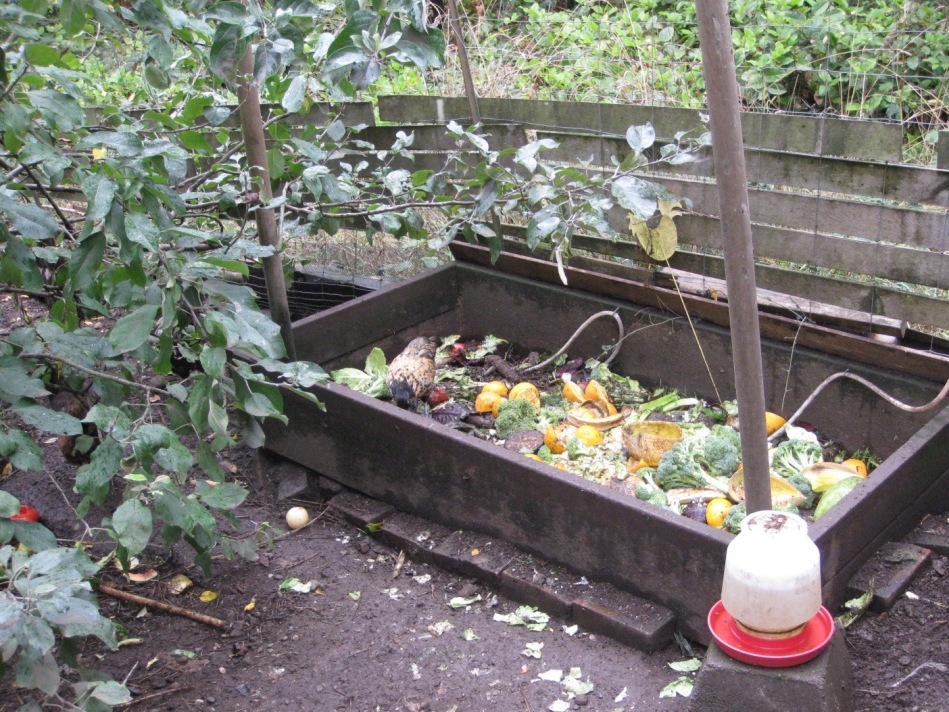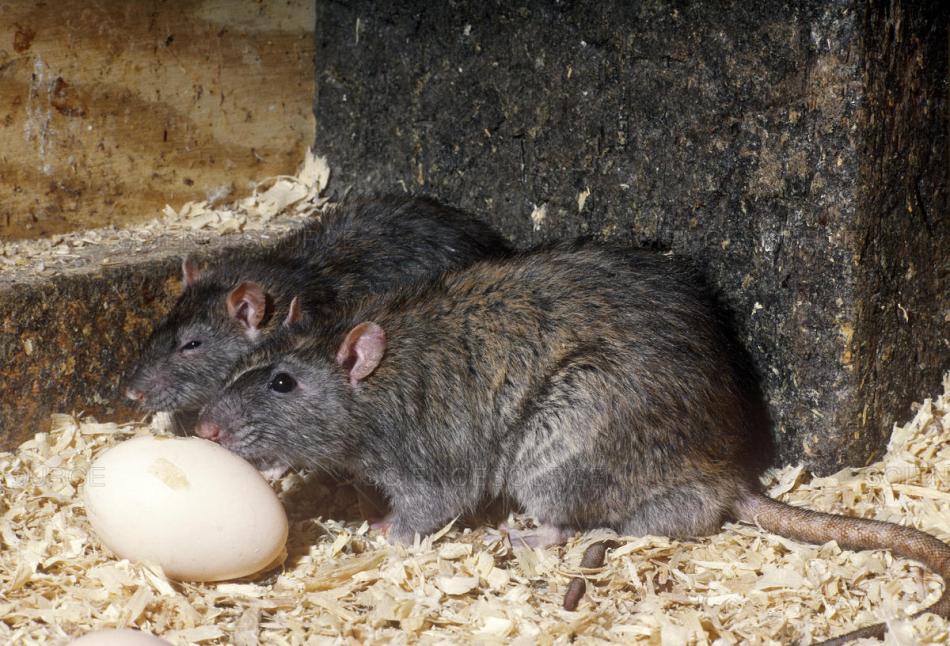I grew up in Toronto and don’t ever remember seeing a rat until I moved to Victoria, a port city with a temperate climate hospitable to rodents. For the first year I lived there I didn’t own a car and worked the 3-11pm shift. I’d cycle home in the dark and would see rats cross the road, caught in my headlamp. One of my cats was an avid hunter and would leave dead rats at the front door.
I live on the west coast where it doesn’t snow much and the temperatures rarely gets below zero. A sustained cold snap is unusual. When we bought our 1940s log house in 2004 we gutted the inside. When pulling down the drywall we came across mummified bodies of baby mice and one big rat. Not to mention a ton of rat poop and the stench of urine. We invited my mum to share our first Thanksgiving here and she remarked it was like having dinner in a litter box. Suffice to say, the smell is long gone, but the problem with dealing with rats has not.
We, like many of our neighbours, have compost bins – a continuous source of food for vermin. In my chicken pen there are remnants of fruit and veggie scraps on the ground that don’t get eaten. Their feeders are inside the coop, which is built on a concrete foundation. The coop is rat proof; the environment is not.

I’ve been meaning to do a blog piece on rodents for awhile, but an event last week was the catalyst for writing it now.
We were working on another house project, bringing in an excavator to dig a trench that accidentally severed a telephone cable and exposed water and electrical lines. The remedy for that is a whole other story; we’re now dealing with repairing and reburying all those services. That incident required our contractor to go into our crawl space. Houses in this region are built with wood, which is way more plentiful than bricks, and don’t often have basements. Our house is built on rock – a big slab of sandstone runs under most of the house and we have a small crawlspace at the back accessible through a trap door in the laundry room. I rarely have a need to go down there and once there am only able to hunch-walk.
A few weeks ago, I put in a load of laundry and heard a different kind of running water sound. I checked to make sure the hoses were in place and didn’t think anything more of it. I’ve heard that sound a few more times since, but didn’t think to investigate. Note to self: ignore potential warning signs at your peril.
You’ve probably guessed by now, what our contractor found was a crawl space flooded with stinky water. He discovered that one of our PVC plumbing lines had been chewed right through by rats! And I’m talking a big hole in a 3” pipe. All the water draining from our dishwasher, kitchen sink and washing machine for the last few weeks was sitting down there. The pipe has been replaced, ventilation holes drilled, entry points blocked and an industrial fan has been blowing 24 hours a day for a week. The whirring is driving me nuts.
I’ve never been a big fan of rats, but now I’ve got a big of a hate-on for the ones who want to share my home. This winter we could hear one scampering overhead, running along between the living room ceiling and the second story floor. Several times, when working on my computer, I heard a soft snoring. Thinking it was my cat I looked around and couldn’t find him. On closer investigation I realized it was coming from inside the wall! Who knew rats snored (either that or it was a red squirrel and they are a pretty rare sight here).
We’ve worked to patch any small holes between the logs or around the foundation. Those rats are relentless – they’ve chewed and spit out spray foam insulation, dug tunnels and moved rocks. It’s a job that needs to be on the perennial to-do list or they’ll get the upper hand.
So what are the issues with rats?
If you’ve got chickens you’ve probably dealt with mice or rats – we’ve got both.
As you can see from my experience, once they get into your buildings, whether it’s a house or coop, they can cause damage by chewing insulation, wiring and plumbing.
This is Betsy & Hector‘s coop door, made from a plastic bread board, well chewed by rats.

Damaged wires are a fire hazard.

And once inside the walls it’s harder to eradicate them. They can eat chicken feed, eggs and even chicks. I once watched an online video of a rat stalking and killing a bantam chicken at night.

Rats are carriers of pathogens that affect both chickens and people. They carry diseases on their feet and in their droppings, which can contaminate bedding, coop floors, feeders and waterers.
They make nests in your shavings and bales of straw. A friend once gave me several garbage bags of alpaca fur, which were unsuitable for making into wool. I stored them under a tarp near the coop. When I opened one up months later there was a rat nest and dead babies. Nothing like providing rodents with the best bedding for their kids.
Ridding Yourself Of Rodents
Preventing rodents isn’t easy but making your place less hospitable is a start:
- My feeders are inside the coop and layer pellets are stored in rodent proof containers.
- There are a variety of automatic and treadle chicken feeders, which rodents would have a hard time getting into. Clean up any spills.
- Practice good bio-security and clean your coop often.
- Make sure there aren’t easy access points into your coop. Mine is built on a concrete foundation and all the windows are predator wired. Rats can easily chew through chicken wire.
- Look for the signs of rats around your coop: chewing, droppings and tunnels. Remove nesting material and places to hide.
- Get yourself a good ratting cat or terrier.
We’ve got an avid hunter who routinely kills mice, but only occasionally pulls down a rat. Unfortunately he’s also killed a couple of red squirrels, which do us no harm.
Despite the damage they’ve done I still want to eradicate rodents in the most humane way possible: snap traps. They are quick and efficient and don’t affect other species. I am a staunch opponent of using glue traps, which are cruel and poison, which is not only a slow, painful death but can affect other species in the food chain that eat poisoned rats.
We have a number of owls on our property and I’m forever thankful for them as they hunt rodents.
I routinely set snap traps screwed to a 2”x4” for the rare occasions when they are only injured and not killed, and might drag the trap away in their attempt to escape. I’ve got them in the laundry room where my cats wouldn’t have access, as well as outside.
Using them outdoors is tricky because I don’t want to trap wild birds. I set them in my chicken pen, after dark, under a covered box so, they are easily accessed by rodents, but not birds. I check them first thing: if I’ve caught something I put it out on a stump to feed our resident ravens and if not, I pick up the trap till nighttime.
If you’re feeling more charitable you can use live traps and release what you’ve caught away from your neighbours.
If you’ve got chickens then you’ve got rodents. Don’t assume if you don’t see them they’re not there. And assume if you do see one there are more where that one came from. Ignoring them can lead to bigger issues down the road. Learn from my experience and keep on top of them. We can’t eradicate them all, but keeping their numbers down goes a long way to preventing problems associated with mice and rats.









Great article. We have dairy goats along with a few chickens and the rats & mice live in the hay too. I’m not really a fan of killing anything that isn’t used for food, but rodents carry disease – like listeriosis – which is a big concern if you are drinking your own milk. Thanks for writing about the issue.
LikeLiked by 1 person
Thanks for sharing. I too have been dealing with rats. Snap traps and a rat zapper are my weapons of choice. They also chewed on pipes in my crawl space, unfortunately it was my hot water line which once chewed, sprayed upwards. Most of my home’s floors now need to be replaced, sub flooring and all. A very costly mistake. I underestimated the damage they can do.
LikeLiked by 1 person
We’ve been dealing with this same thing this week- 6 young rats caught in snap traps. What do you bait them with? Using peanut butter & bacon fat smeared through the trigger, we often find the traps licked clean and not sprung. Thinking of wrapping sandwich meat or something stringy… I’d like to catch the adults! And good tip about securing to a 2×4, one of ours crawled away and it took a bit of effort to find it.
LikeLiked by 1 person
I use peanut butter and always seem to catch big rats. I’ve even caught two in the same trap.
LikeLike